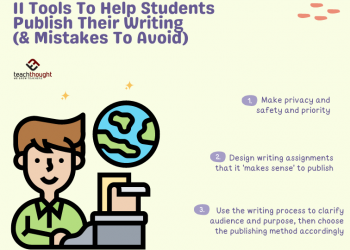It has become a common refrain: the COVID-19 pandemic heightened disparities that were already present in American education. This happened in ways that should not have surprised us.
But they did surprise us. Here at the Associate of Community College Trustees (ACCT) 2022 Leadership Congress currently being held in Manhattan, these key take-aways are being reinforced with increased nuance and clarity.
First, many leaders were surprised to find that community colleges suffered more severe enrollment drops during the pandemic than any other higher education segment. They experienced a decline of over 11 percent, according to the National Student Clearinghouse. In past recessions, community colleges attracted more students, as individuals who lost their jobs returned to college to freshen their skills or retrain for new positions. (Such phenomena are termed “countercyclical enrollment increases.”)
But that didn’t happen during the COVID-19 pandemic.
Those puzzled by the extraordinary drop in enrollment at two-year colleges have likely neglected to understand the needs and concerns of what we term “neotraditional students.”
Neotraditional students, as described in Beyond Free College: Making Higher Education Work for 21st Century Students, are a collegiate reality. Neotraditional students tend to be older than 25 years of age. They may be working to support their households and care for children. They come from groups that are largely underrepresented in higher education. Finally, they are often from low-income backgrounds. Increasingly, these students, rather than eighteen-year-old high school graduates, form the core of the college-going public.
When we think about the daily lives of our neotraditional students, we can understand the drop in enrollment during the pandemic. Older adults, for example, likely do not have the option of moving back in with their parents. If they are supporting a family, going to college might be a laughable luxury, especially while many were home-schooling their children at the same time. And since it costs money to go to college—even a community college—many prospective students don’t view college as a possibility, whether or not there is a pandemic.
Marvin Martinez, the Chancellor of Rancho Santiago Community College District in California presented alongside his Board of Trustees Vice President, David Crockett in a session entitled, “Equitable Student Success in the Time of COVID, sponsored by UCLA and the ECMC Foundation.” Both of them repeatedly reinforced that one of the primary reasons their enrollment has increased rather than decreased has been two-fold. First, they returned to a fully opened campus in the fall of 2021, far earlier than most (although squarely focused on safety by encouraging students, faculty, and staff to be vaccinated). Guiding their commitment to returning to face-to-face operations was the knowledge that their students are largely low income and minoritized. With a campus to return to, students would have access to everything from food to the library to the direct personal contact they needed to thrive. Second, federal and state dollars were distributed to students with an intentional focus on incentivizing degree completion. Students were awarded increased support only if they enrolled in more credits, thus propelling them more rapidly towards degree completion.
Second, leaders were needlessly surprised by the necessity and scarcity of Internet access. From an educational perspective, we learned during the pandemic that the Internet, like affordable housing, has become essential gateways to the middle class. As the pandemic shut down schools and colleges, the only way to access education was to go online. Attending college classes was impossible for those without access to a computer and sufficient bandwidth to connect continuously (preferably with video).
During the pandemic, no Internet = no college.
At the 2022 ACCT meeting, Chancellor Martinez reinforced that the digital divide continues be an incredibly high barrier for students, whether because the free laptops aren’t high enough quality for the courses students want to take, or because the higher-quality WIFI required for more technical courses has a prohibitively high monthly cost. A return to face-to-face instruction means that campus WIFI is once again accessible to all.
We Missed the Signals; Let’s Not Miss the Lessons
We know now that the pandemic took its own tragic course, insisted on its own unbendable rules, and took advantage of every provincial misconception we held about the resilience of American democracy. The fact that the pandemic became intertwined with a profound and ongoing period of racial reckoning has added immeasurably to the pain.
So, we missed the signals. But we will have no excuse if we miss the lessons. We believe there are at least two obvious ones:
First, data matters. The Gates Foundation report, Equitable Value: Promoting Economic Mobility and Social Justice through Postsecondary Education, underscored the importance of intentional use of data to close education gaps. The goal is not only to promote education access but also to advance student retention and graduation for neotraditional students. The report insists,
Without explicit attention to racial, socioeconomic, and gender equity, postsecondary education will continue to sustain and exacerbate inequalities, but a more equitable postsecondary education system can build a more just society. We urgently need to transform the nation’s postsecondary system to ensure value for the very populations most impacted by racial and gender violence and the coronavirus pandemic and the dire economic—and life-or-death—consequences they impart to marginalized communities (p. 9).
We must recommit to understanding our progress (or lack thereof) as we strive to create a more equitable educational system for our country. Along with the racial reckoning of our time, the pandemic has made it clear that we must take national action—and sustain it—so that these difficulties serve as an engine of opportunity rather than a cruel divider between the “haves” and the “have nots.”
Second, poverty matters. As noted in a 2021 Aspen Institute report, “You can’t move students to a degree and a career if you don’t remove the barriers poverty creates” (p. 16). The pandemic underscores the necessity of providing student “life supports” to help propel them towards the completion of college degrees and certificates. These life supports are not sophisticated strategies and are well understood by students who try to complete a college degree. They include affordable housing, food, childcare, and transportation. COVID-19 taught us that we need to make sure these supports also include access to a computer and to Wi-Fi.
We should remember that even in states offering “free college,” that it isn’t free: someone is paying for it, and that’s us, the American taxpayers. We need to be sure that we get the return on investment that our country needs and deserves. Our nation needs to truly deliver both access and the wrap-around life supports for food, housing, technology, mental health support, transportation and childcare required for students to complete life-transforming degrees. As Trustee David Crockett reiterated: “As community colleges, we have a mission that grounds us: we need to remain committed to our students and to our communities.” America must move towards the provocative goal the Gates Foundation report calls us to deliver, by providing equitable value in higher education in a manner that promotes both mobility and social justice.
Source by www.insidehighered.com










